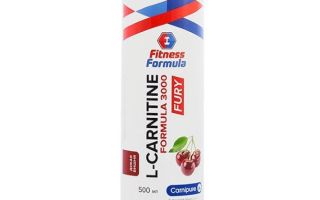Content
- 1 What is L-Carnitine and where does it come from
- 2 The benefits and properties of L-carnitine
- 3 Indications for use
- 4 What foods contain L-carnitine
- 5 Preparations containing carnitine
- 6 Forms of release of L-carnitine and their composition
- 7 Features of taking L-carnitine and dosage
- 8 How to take carnitine: before or after meals
- 9 How much L-carnitine to take
- 10 L-carnitine harm and side effects
- 11 Contraindications for taking L-carnitine
- 12 Interaction of L-carnitine with other drugs
- 13 Carnitine alcohol compatibility
- 14 L-carnitine and carnitine: what is the difference
- 15 Levocarnitine analogs
- 16 Conclusion
- 17 Reviews of doctors about L-carnitine
- 18 Reviews of losing weight about levocarnitine
Carnitine is present in almost every cell in the body. It plays an important role in energy production as it is responsible for the transport of fatty acids to the mitochondria. L-carnitine is needed for the transfer of fatty acids in the body. Scientists first isolated it from meat. It is a popular supplement among athletes.
What is L-Carnitine and where does it come from
Carnitine is a naturally occurring vitamin nutrient derived from the amino acids lysine and methionine, which are produced in the liver. It plays an essential role in cell catabolism.
L-carnitine acts as a receptor molecule for activated fatty acids in the cytosol and cell organelles like mitochondria and peroxysomes. Intensively interacts with coenzyme A. Long-chain fatty acids can be transported across mitochondrial membranes into mitochondria, only associated with L-carnitine, where they are burned through beta-oxidation.
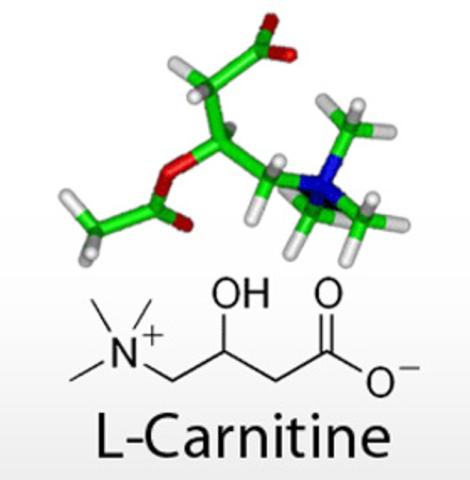
It is mistakenly called BT and B11. L-carnitine is a related component of this group of vitamins.
The human body can form a substance from the amino acids methionine and lysine itself, but it absorbs it mainly through meat. Carnitine is found in high amounts in red meat, especially sheep and lamb. The bioavailability of the substance from food is 54 -87%. Absorption is highly dependent on the carnitine content of the food as well as its composition.
The total reserve of a substance in the body is about 20-25 g, and the percentage is especially high in tissues with a high metabolism of fatty acids. Cardiac and skeletal muscles store 98% of L-carnitine. About 20 mg is excreted daily through the kidneys into the urine.
Chemically a gamma amino acid, but not proteogenic. Types of carnitine:
- D is an inactive form of a substance that has the ability to cause a substance deficiency. This can interfere with the absorption of other forms of the nutrient that may be more beneficial to the body.
- As a biologically active form, carnitine is used to increase energy in athletes and bodybuilders. It is also used among people suffering from diseases and genetic disorders.
- Alcar is used to improve brain function and cognition.
- The substance propionyl-L-carnitine takes part in supporting blood circulation. It fights any blood flow problems such as peripheral vascular disease.Carnitine lowers high blood pressure.
- The tartrate is rapidly absorbed into the muscles. Consequently, L-carnitine in this form is more commonly used as a sports supplement. It is prescribed in especially difficult periods of muscle growth in athletes.
Free carnitine levels can sometimes be elevated. This means that a person does not load the body physically enough.
The benefits and properties of L-carnitine
The substance has therapeutic properties that are useful in the treatment of a variety of diseases and conditions. L-carnitine, as an antioxidant, fights harmful free radicals that cause serious cell damage.

Vitamin L-carnitine has different modes of action that are important for the body:
- Transportation of long-chain polyunsaturated fatty acids into plastic organelles. But this classic function only requires 5% of the existing L-carnitine.
- Serves as a buffer function of coenzyme A. The body uses 95% of the substance as a buffer reservoir for acyl compounds, which suffer from a lack of oxygen.
L-carnitine is safe and can be used for almost any type of heart disease. Reduces the level of triglycerides, LP (a), fights atherosclerosis. L-Carnitine is beneficial for the heart in that it counteracts arrhythmias by protecting cells from long-chain compounds.
Carnitine works to counteract brain aging, dementia, and Alzheimer's disease. Increases concentration and sensitivity (learning ability). Unlike most antioxidants, L-carnitine can cross the blood-brain barrier. The substance promotes and protects the formation of nerve growth factor receptors.
The role of L-carnitine in male fertility is high. The substance increases the amount of ejaculate, it has been proven that sperm is activated, its mobility and endurance improves, and the number of sperm is increased. Carnitine can increase the likelihood of successful conception. The fertility of women increases, since the process of implantation of fertilized eggs into the uterus is membrane-energy.
Take the substance during pregnancy to prevent deficiencies in the blood and tissues of pregnant women, increase fetal muscle mass and increase vitality. An adequate supply of L-carnitine contributes to the rapid development of lung and heart functions in the embryo. During pregnancy, the fetus is supplied with nutrients through the placenta. L-carnitine is added to baby food for better baby growth.
Since the substance is a water-soluble molecule, it is removed from the blood of patients with kidney disease by hemodialysis. This leads to very low levels of L-carnitine in dialysis patients.
Individuals with advanced renal failure often take the substance orally or intravenously to compensate for these losses.
Liver cells contain up to 20,000 mitochondria, in which this component is required for the production of large amounts of energy. L-carnitine is beneficial for the liver in that it reduces the negative effects of alcohol. This substance increases fat burning and increases urinary metabolism, improves ammonium detoxification.
L-carnitine leads to vasodilation in the muscles, increased blood flow and spontaneous gains in strength. It reduces stress on muscle and reduces stress-induced damage, so recovery time is shortened and performance increases with repeated exercise.
L-carnitine for hair is used to accelerate hair growth. The substance affects the anagen phase.

Indications for use
The use of the L-Carnitine Complex is indicated for athletes to increase endurance and performance during exercise.
Also, the drug is prescribed for people with heart pathologies, premature babies and babies during the period of active growth for the normal development of skeletal muscles. It is recommended to take L-carnitine for vegetarians and individuals for the complex treatment of diseases of the liver, heart and blood vessels, pancreas and endocrine system.
What foods contain L-carnitine
An interesting fact is that dietary sources of L-carnitine have a higher absorption rate than supplements.
The main sources of the substance:
- beef;
- pork;
- fish;
- hen;
- milk.
Carnitine is found in cheddar cheese. Non-animal sources of the substance include whole grain bread and asparagus.
Adults with a diet rich in red meat consume an average of 60 to 180 mg of carnitine per day. A vegan diet usually provides the body with 10-12 mg of the substance per day.
Preparations containing carnitine
L-carnitine is found in the medicines Tartrate, Arnebia, Acetylcarnitine.
Arnebia vitamins are produced in Germany, the composition is selected in such a way that trace elements and other substances complement each other optimally.
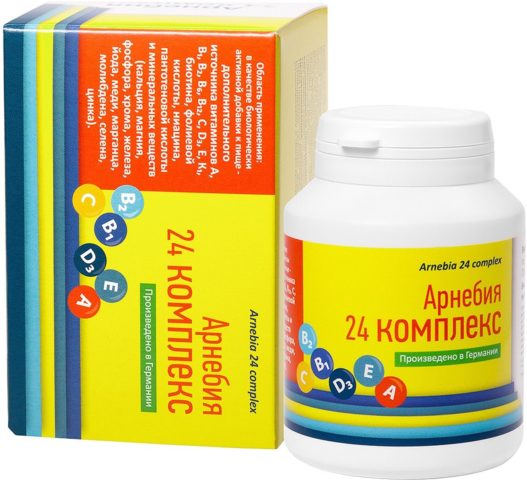
Tartrate is the most effective carnitine for muscle growth. It has the unique ability to burn fat and promote muscle building. Carnitine is in demand in sports medicine.
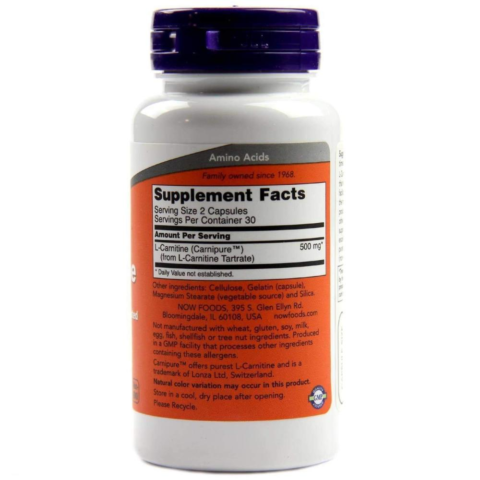
If you have problems with the thyroid gland or anticoagulants, it is important to consult a doctor before use.
Acetylcarnitine is a metabolic agent. Its action is due to metabolic effects, energy conversion in the body and fat catabolism. This is the best L-carnitine of its kind.
More innovative and advanced shape. Bioavailability is lower than that of a simple species.
Other dietary supplements containing a substance:
- ANDcetyl L-carnitine, 500, MRM... The drug improves memory and supports cognitive function. Acetyl L-carnitine contains rice flour and cellulose capsule.
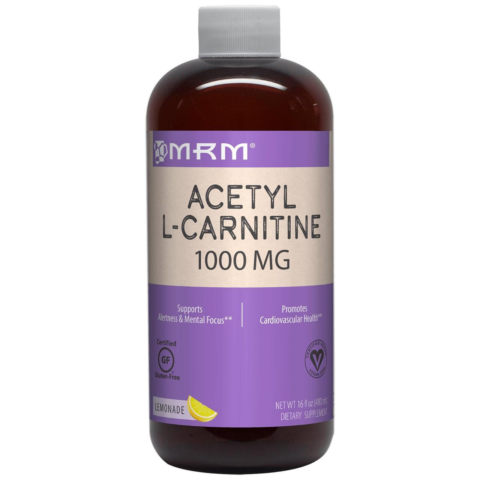
- Acetyl L-Carnitine & Alpha Lipoic Acid, 650, Source Naturals... Weight of 1 tablet 106 g. Has no taste. Do not take L-carnitine and alpha-lipoic acid for epileptic seizures, pregnant women, and in violation of blood sugar metabolism.
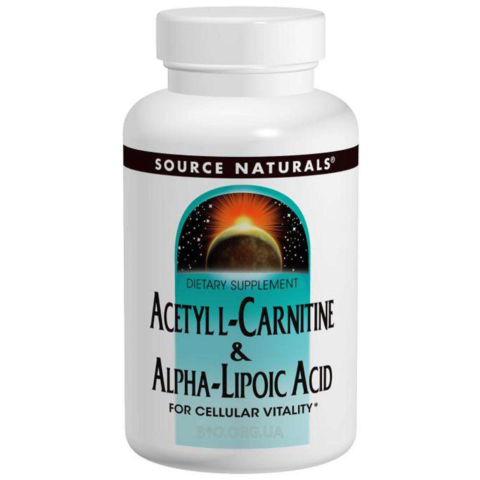
- Lean Mode, Stimulant-Free Fat Burner Supplement, EVLution Nutrition... Stimulant-free, suppresses appetite and regulates energy levels.
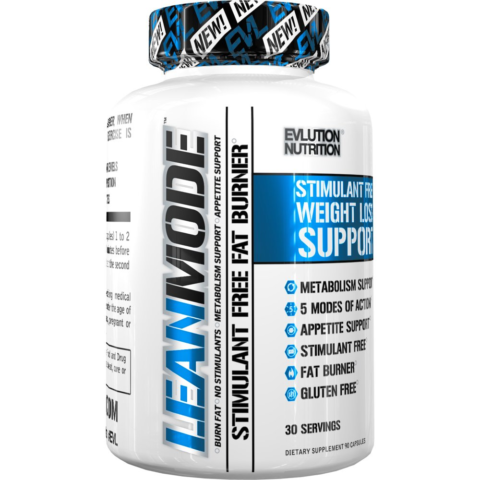
- Xtreme, Dymatize Nutrition... A lightweight fat burner with L-Carnitine that simultaneously enhances athletic performance. Improves muscle endurance and performance.
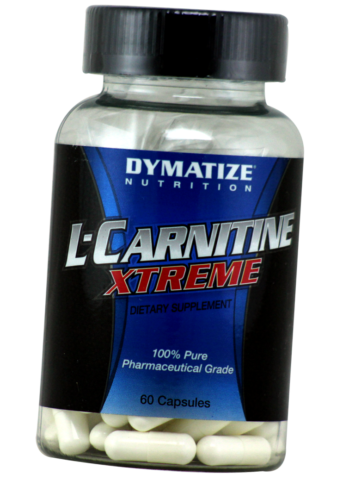
- L-Carnitine Fumarate with Carnitines Biosint, 855 mg, Doctor's Best. The L-carnitine fumarate used in this formulation is derived from pharmaceutical grade L-carnitine.
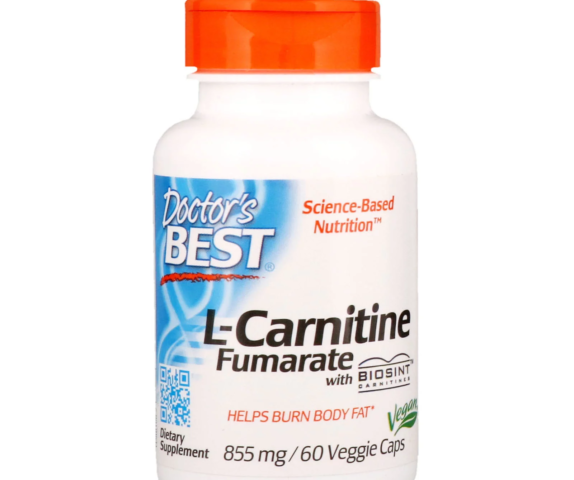
- Essential Series, Platinum 100% Carnitine, 500 mg, Muscletech. The drug with L-carnitine restores muscles after exercise. Does not stimulate their growth.
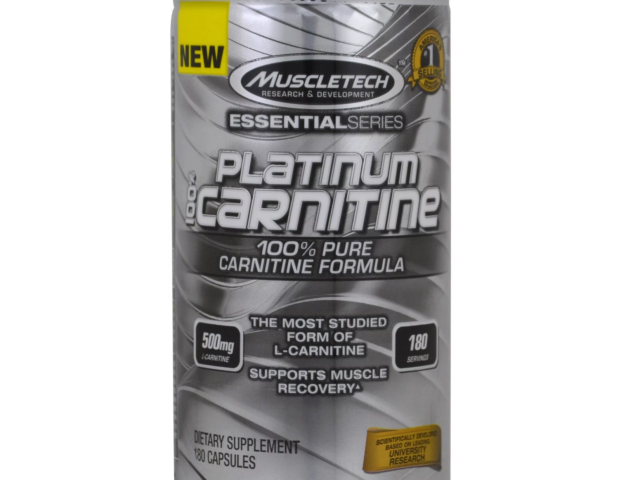
- Gold L-carnitine 10000 + Chromium, Olimp (Poland)... Effectiveness is achieved only with active training.
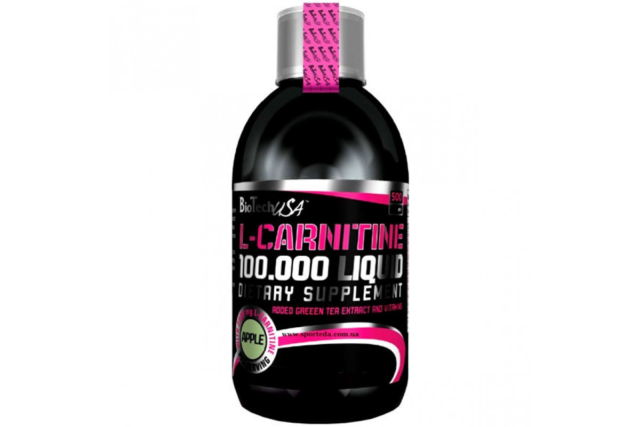
Forms of release of L-carnitine and their composition
It is produced in syrup, tablets, capsules, powder and ampoules. Each form of L-carnitine release differs in composition.
The existing variants of the drug and their composition are presented in the table:
|
Release form of L-carnitine |
Active substance |
Additional components |
|
Syrup |
L-carnitine |
Citric acid, fructose, preservatives. Some syrups contain vitamin B5, chromium. Add the taste of grapefruit, apple and pear, orange, berries |
|
Capsules |
— |
|
|
Powder |
taurine, vitamin B6 |
|
|
Ampoules |
— |
|
|
Tablets |
talc, HPMC, titanium dioxide, polyvinylpyrrolidone, glazing agent. |
Features of taking L-carnitine and dosage
The features of the use of different forms of the drug are different, since each of them has a different composition of the active ingredient. To get the maximum effect from taking carnitine, proteins and vitamins B, C should be present in the diet.
Liquid
The drug in the form of a syrup can be taken regardless of food intake. Drinking L-carnitine should not be diluted before use, washed down with water.

Minus - limited shelf life after opening the lid. Once opened, liquid carnitine can be used within 15 days.
The dosage of the drug for adults is 5 ml 3 times a day, for athletes it is increased to 15 ml once before training. Carnitine treatment lasts 1-1.5 months, it can be extended after consultation with the doctor.
In capsules
The drug in capsules should be swallowed with plenty of water. Do not chew L-carnitine in this form, do not spoon or divide. The dosage is 250-500 mg, 2-3 times a day.
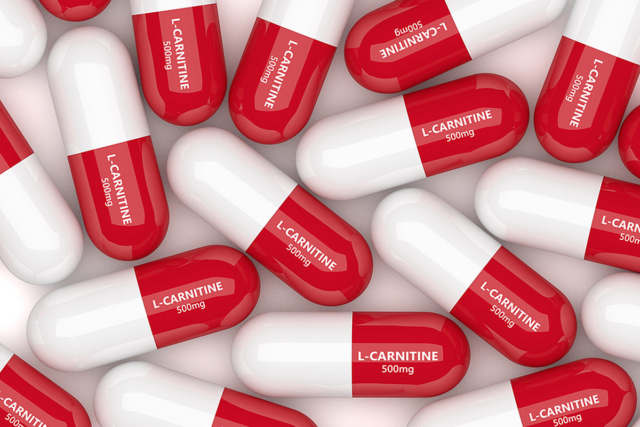
L-carnitine capsules contain coarse fibers that prevent hunger.
Powder
The drug in this form is taken along with a low-carb diet. Women and children are recommended 1-3 g of carnitine per day, men from 2 substances per day. Dissolve a single dose of the drug in 0.4-0.5 liters of liquid.

In ampoules
The solution for administration is clear. In one ampoule 5 ml, 1000 mg of carnitine. The drug is administered by intravenous drip, slowly or in a stream. Before use, carnitine is dissolved with 5% glucose solution (100-200 ml).
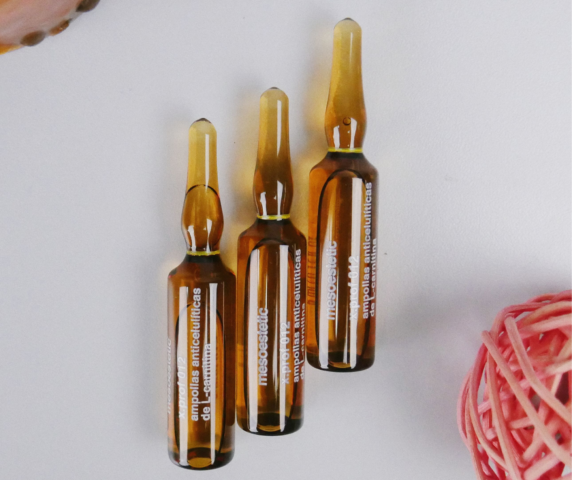
In one ampoule, a single dose of the substance. The absorption process of carnitine in this form is fast.
The dosage of the drug depends on the indications. In case of acute cerebrovascular accident - 2 ampoules for 3 days, with discirculatory encephalopathy - 0.5 g 2-3 times a day without dilution, with carnitine deficiency during hemodialysis - 2 g once after the procedure.
In tablets
The drug begins to act 40 minutes after application. Therefore, it is important to drink carnitine not before the workout itself, but for the specified time before it starts.
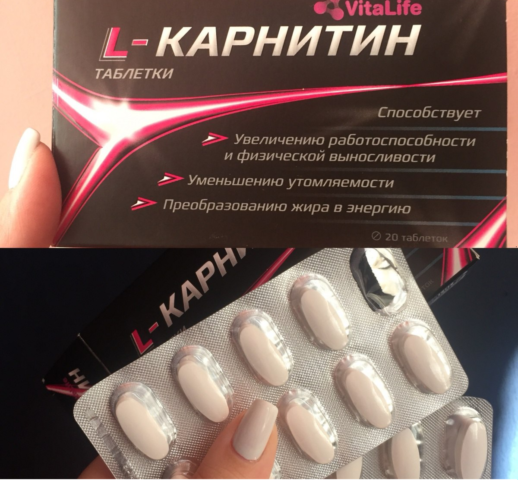
The medicine in the form of tablets is absorbed and broken down more slowly.
The daily requirement for carnitine is 200-500 mg. With increased physical activity - 1200 mg.
The frequency of use of carnitine is 2-3 times a day. It is undesirable to drink the drug for more than 6 months.
How to take carnitine: before or after meals
For optimal results, it is important to follow the regimen. When buying a drug, the question arises of how to drink L-carnitine correctly. The rules of application should be treated responsibly. L-carnitine shows its true ability during physical activity. Also more effective in the morning.
The optimal time to use L-carnitine is in the morning on an empty stomach. It is recommended to drink the medicine 30 minutes before breakfast.
If the drug is prescribed to be drunk several times a day, then the second use occurs in the interval between breakfast and lunch. Bodybuilders drink L-carnitine 30 minutes before training.
How much L-carnitine to take
It is recommended to take the supplement within 1-1.5 months to obtain the desired effect in preparation for important competitions. This is followed by a break of 2-3 weeks and a second course of alpha-carnitine.
The maximum course duration is 6 months. The duration of L-carnitine intake for heart disease is determined by the doctor.
L-carnitine harm and side effects
You must always be aware of both the positive and negative aspects of drugs. Although the WHO says carnitine is "generally safe and well tolerated" as a therapy, there is evidence that it has side effects.
Taking 3 grams of carnitine per day has been reported to result in the following:
- vomiting;
- abdominal cramps;
- nausea.
L-carnitine leads to diarrhea and can provoke cramps, muscle weakness in a person who is prone to heart disease.
When taken orally, it can be metabolized to TMAO by intestinal bacteria. This compound alters cholesterol metabolism and prevents excess cholesterol from being eliminated. The result is the creation of plaque in the arteries.
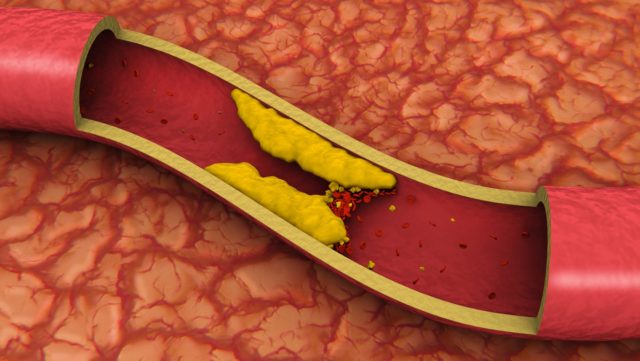
The process of converting to carnitine TMAO. A chronic effect of the latter is possible.
Carnitine is known for its ability to inhibit the entry of triiodothyronine and thyroxine into cells. For people with hypothyroidism, the substance is not number one. It is contraindicated in this case.
An overdose of L-carnitine leads to lack of sleep, the manifestation of an allergic reaction, and prolonged diarrhea.
Contraindications for taking L-carnitine
According to the studies, taking the drug is contraindicated in case of an allergic reaction to protein, in patients with insulin-dependent diabetes mellitus and high blood pressure.
Also, the use of drugs for pregnant women and women during lactation is contraindicated. Epilepsy, kidney disease, trimethylaminuria, atherosclerosis, coronary artery disease and pathologies of the endocrine system also belong to the list of prohibitions for L-carnitine.
Interaction of L-carnitine with other drugs
The tool does not interact with other medications. L-carnitine can be combined with any drug. It can even be taken with other fat burners.
Carnitine alcohol compatibility
The combination of drugs with alcoholic beverages is impossible. When taking carnitine, you do not need to give up alcohol.
Drinking the drug and alcohol at the same time does not pose any threat to the health of the human body. This is proven by many years of studies of the interaction of carnitine and ethanol.
L-carnitine and carnitine: what is the difference
Chemists ranked the substance as a group of vitamins, in fact, it is a coenzyme, since it is produced by the body in the kidneys and liver. The difference between them is that the component with the prefix L is natural. It's just that carnitine is a synthetic supplement.
Levocarnitine analogs
There are not many substitutes for the drug. Carnitine analogues include:
- Levocarnil... The basis is carnitine. Improves health in different ways. After opening the bottle, take no more than 2 months.
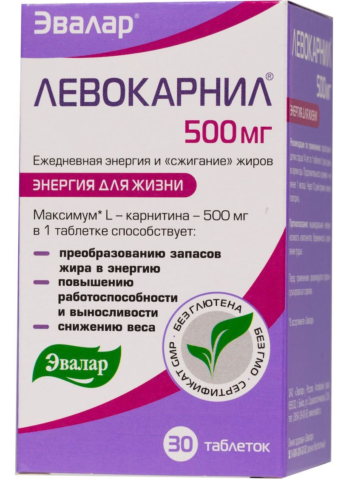
- Elkar. Corrects metabolic processes. An analogue of L-carnitine is administered intravenously. With rapid introduction, pain may occur.
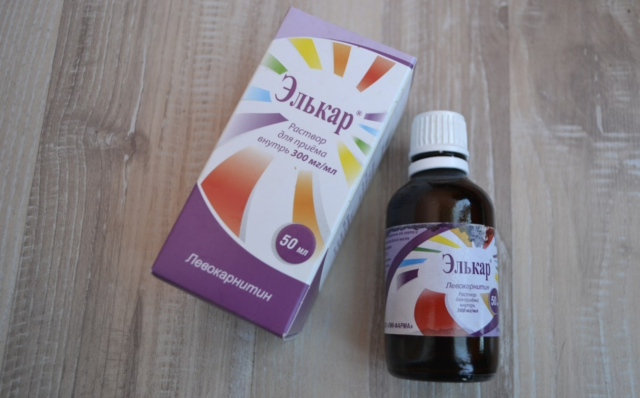
- Polyprotene... The drug is adapted for patients with chronic kidney disease. The nutrient mixture stimulates intestinal motility and normalizes the metabolism of fats, proteins, carbohydrates.
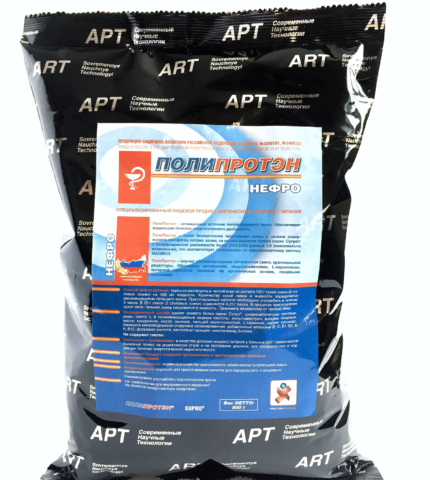
- Medicines... High doses of L-carnitine analogue provoke diarrhea. With prolonged use, stool loosening is also possible.
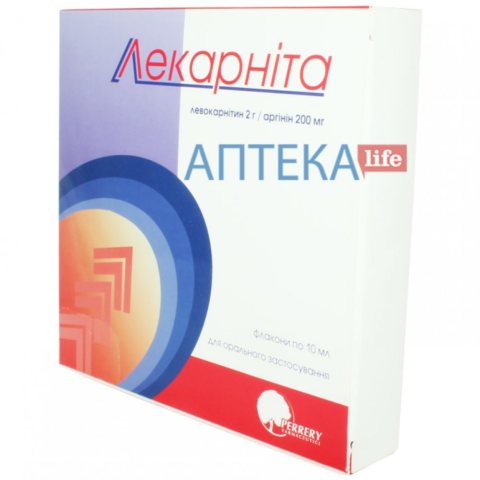
- Carnivite... Reduces the symptoms of mental and physical stress. May cause nausea, vomiting, epigastric pain, and seizures.

- Cartan... It is well tolerated, but more often leads to moderate gastrointestinal upset.

Your doctor will help you choose a carnitine substitute. You cannot buy an analog on your own.
Conclusion
L-carnitine is needed for energy metabolism. The substance transports fatty acids into the mitochondria, after which the body receives energy. L-carnitine is produced naturally, but sometimes an additional source of the substance is required, which a person receives from drugs and dietary supplements.

